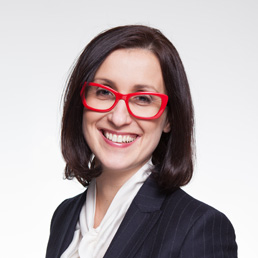After accession of Poland into the European Union, many young people, who were born in the period from 1970 to 1989, migrated to the UK and other EU countries in search of work and better prospects for personal development. Professor Izabela Grabowska from SWPS University in Warsaw will present the results of a study tracking the impact of migration on the so-called Generation of Change (born in 1970s) and Generation of Migration (born in 1980s).
The lecture, organized by SWPS University's Interdisciplinary Doctoral School is a part of the series The Challenges of the Humanities of the 21st Century.
The lecture will be delivered in English. Free admission.
The lecture presents the impact of international migration on social skills of two generations of Poles, namely the so-called ‘Generation of Change’ (born in the 1970s and the beginning of 1980s) and the ‘Generation of Migration’ (born in the 1980s and at the beginning of 1990s). The researchers use data from extensive quantitative study on Human Capital in Poland, including 4,040 migrants and 67,174 stayers, and qualitative studies on Peer-groups and migration, involving In-Depth Interviews (IDI) with 160 people.
The study has shown that international migration has had the strongest impact on social skills of the ‘Generation of Change’, particularly those born between 1968 and 1972, who were 18 and older in 1989. These people were also dubbed the ‘Generation of Historical Hope and Everyday Risk’, and were regarded as embodiments of the system transition. In general, the effects of migration on social skills persisted in the cohorts born between 1968 and 1989 and the younger the cohorts were, the stronger the migration impact was on their life skills.
Therefore, the mobile transitions approach, used by Shanthi Robertson and her team, was needed to capture how younger cohorts, born after 1989, also from the ‘Generation of Migration’ formed, enhanced and consolidated various life skills through international migration. Especially for young post-accession migrants from Poland, working abroad went far beyond the impact on formal qualifications and just employability. It related to life skills of self-making, making biographical transitions, communicating and relating to people and understanding society.
Professor Grabowksa will also discuss what positions people achieve in the labour market after the return to their native countries or while experiencing return mobilities.

Speaker
Professor Izabela Grabowska – Sociologist and economist, specializing in research on employment market, the school-to-work transition as well as development and migration with a focus on skill transfer. Her research interests also include career development of globally mobile individuals, and social remittances. Since 2001, she has been collaborating with the Centre of Migration Research at the University of Warsaw, where she currently serves as International Research Coordinator. She is a member of the IMISCOE Research Network (International Migration, Integration and Social Cohesion), an international research network of 36 member institutes and over 500 scholars from all over Europe. She is Deputy Chair of the Board of Directors and a member of the Executive Board at IMISCOE. She collaborates with Ernst & Young Business School in Bologna, consulting on Public Employment Services, especially EURES, the European job mobility portal. Additionally, she advises District Employment Offices in Poland on the assessment of employment practices and the design of career paths for the unemployed. She is a national expert at the European Commission for the new European Qualifications Framework (EQF) with respect to the European Skills, Competences, Qualifications and Occupations (ESCO) and a former national expert at the European Mobility Laboratory and European Web-tool for Evaluated Employment Services Practices (WEESP). At SWPS University, she lectures on personal development, new technologies impacting the job market as well as research planning and methodology.
“The Challenges of Humanities of the 21st Century” is a series of lectures by distinguished specialists, who represent various disciplines from the field of humanities. The events are aimed at students of SWPS University's Interdisciplinary Doctoral Program, however all interested parties are welcome. The format includes post-lecture informal discussions on topics presented by the invited experts. The friendly atmosphere of the events is conducive to networking, which lends itself to opportunities of future internships at universities or research centers around the world.
Doctoral Education at SWPS University is directed to people interested in an academic career and also to those, who would like to continue their education and personal development in support of their career advancement. The interdisciplinary character of our programs allows students to participate in projects from various disciplines. Our doctoral students collaborate with scholars from the best research centers in Poland and around the world. The master-apprentice approach guarantees that each student receives individual attention and professional support.